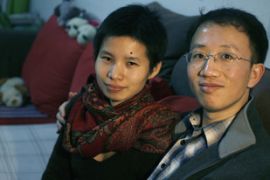China dissident pleads not guilty
Hu refutes subversion charges as China denies pre-Olympic crackdown on dissent

As China prepares to display its growing prosperity and confidence at the Olympics opening on August 8, critics have said the trial shows the ruling Communist Party’s desire to silence domestic critics before the Games.
“Hu Jia’s case has been marked by grave rights violations from the outset,” New York-based group Human Rights Watch said in a statement e-mailed before his trial. “His arrest was political, the charges are political, and his trial is political.”
Quick verdict
His lawyer said court officials had pressed for a copy of the defence statement, leading him to believe there could be a quick verdict.
“I think there could be a result quite soon, perhaps this week,” Li said.
If convicted, Mr. Hu could be jailed for up to five years.
“As for critics’ view that China is trying to increase its efforts to arrest dissidents ahead the Olympic Games, I think all these accusations are unfounded,” Premier Wen Jiabao told a news conference.
He said individual cases would be handled in accordance with the law and that China wanted to ratify the International Covenant on Civil and Political Rights but first had to work on reconciling its laws with international standards.
China signed the covenant in 1998, a document that covers freedom of expression, religion, assembly movement and speech, participation in public affairs and elections, and equality.
Starting with work on behalf of rural AIDS sufferers, Hu, 34, emerged as one of the country’s most vocal and active advocates of democratic rights, religious freedom and autonomy for Tibet, whose capital Lhasa was rocked by riots last week.
His wife, Zeng Jinyan, named by Time magazine as one of the world’s 100 most influential people, and their daughter remain under house arrest.